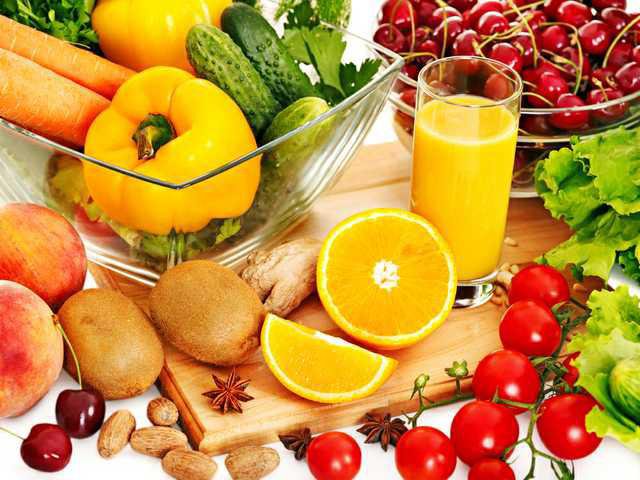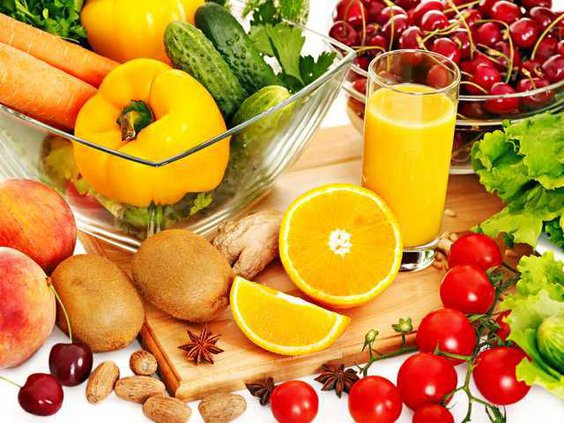Its summer time. Between barbecues, hanging out poolside, hikes and family trips, your healthy eating efforts may take a backseat during these fun but busy summer months. Even when youre on the go this time of year, you can still make healthy, wholesome eating happen. In general, healthy eating requires planning and thinking ahead to minimize eating out. While eating out is fun and delicious, indulging too often can lead to your body feeling sluggish and low on energy and can detract from fun experiences this time of year.
Lets talk through some of the most tried and true ways to make nutritious eating happen during the busy summer months.
Invest in a small cooler
One of the best things you can do for your healthy eating efforts this summer is to invest in a small cooler. That way you can keep cold foods cold when youre out and about. Its one less barrier to packing foods for outings when you know your food will stay fresh and cold. You can use it for snacking and eating lunch by the pool, at picnics, on road trips or for outdoor activities. Pack cheese, fruit, veggies, hummus, mixed nuts and water for satisfying snacks and pack sandwiches or salads for meals on the go.
Bring your own food
When youre going on a vacation, see what you can do to plan some meals to eat in the hotel. For many, it works well to plan to eat out for just one meal per day and to take care of the other two meals plus snacks by bringing those foods (or shopping for those foods when you get to your vacation spot) with you. Breakfast foods could include oatmeal, bananas, cottage cheese, granola, yogurt, berries, etc., and could be kept in your hotel fridge. Lunch could also be relatively easy to plan ahead for having sandwiches, fruit, veggies, nuts and yogurt. If youre on the go for lunch, pack a sandwich, fruit and a veggie and keep it cool in your backpack by adding ice to your water bottle and storing your sandwich close by.
Bring Tupperware
Theres nothing worse than a smushed sandwich, right? Pack your on-the-go snacks and meals in reusable containers to help keep things fresh and tasty. And its a great way to reduce the waste you create as you eat foods away from home.
Pick and choose when you plan to eat out
As mentioned above, for trips consider making a guideline to eat out just once per day, eating the other meals in your hotel or packed in your backpack. Make your restaurant and eating out experiences as intentional as possible to ensure you are able to eat well-balanced, nutritious foods that make you feel your best.
Have healthy snacks on hand
Sometimes a simple summer outing leads to more time away from home than you planned. In those cases, its great to have snacks in your bag, glove box or purse for a quick, healthy pick-me-up. Trail mix with nuts and dried fruit works great since it stays fresh for a long time and you can individually portion out bags of it to stash in different places. Snacking in between meals can help avoid the hungry stage where youre far less likely to make a good decision about what you eat and how much.
Offer to bring side dishes to get-togethers
For those outdoor summer get-togethers, offer to bring a side dish that helps round out the meal. Bring veggies for grilling, fruit salad, watermelon or a green salad. That way, no matter what is served at the barbecue, you can be assured you can eat a well-balanced meal.
When you do eat out, remember the plate method
Ideally, your plate should have a quarter devoted to a starch, a quarter devoted to protein and the remaining half should be filled with vegetables. When you are deciding where to eat and what to choose to eat, its helpful to envision your plate at home (likely much smaller than the plate at the restaurant) and try to eat your restaurant meal as if it were on your plate at home. But real life happens: lets say you find yourself in the front of a hot dog bodega and its calling your name make sure to take time to sit, enjoy the hot dog, but ask for the side of apples instead of chips. Try not to fall into the trap of all-or-nothing thinking when youre eating something thats less than ideal or you dont have many options. Also, sharing an entree can help keep portions realistic, manageable and similar to portion sizes at home.
The take-home message is when you plan your summer days, plan your food. Not only does this help you feel better about your food choices, but it will save money to boot. This time of year is time spent with family, on vacations and with your community. Periodically splurging on your favorites once in awhile isnt the end of the world and can really add to a special moment, but finding little ways to balance out your meals will help you enjoy summer to the fullest.
Lets talk through some of the most tried and true ways to make nutritious eating happen during the busy summer months.
Invest in a small cooler
One of the best things you can do for your healthy eating efforts this summer is to invest in a small cooler. That way you can keep cold foods cold when youre out and about. Its one less barrier to packing foods for outings when you know your food will stay fresh and cold. You can use it for snacking and eating lunch by the pool, at picnics, on road trips or for outdoor activities. Pack cheese, fruit, veggies, hummus, mixed nuts and water for satisfying snacks and pack sandwiches or salads for meals on the go.
Bring your own food
When youre going on a vacation, see what you can do to plan some meals to eat in the hotel. For many, it works well to plan to eat out for just one meal per day and to take care of the other two meals plus snacks by bringing those foods (or shopping for those foods when you get to your vacation spot) with you. Breakfast foods could include oatmeal, bananas, cottage cheese, granola, yogurt, berries, etc., and could be kept in your hotel fridge. Lunch could also be relatively easy to plan ahead for having sandwiches, fruit, veggies, nuts and yogurt. If youre on the go for lunch, pack a sandwich, fruit and a veggie and keep it cool in your backpack by adding ice to your water bottle and storing your sandwich close by.
Bring Tupperware
Theres nothing worse than a smushed sandwich, right? Pack your on-the-go snacks and meals in reusable containers to help keep things fresh and tasty. And its a great way to reduce the waste you create as you eat foods away from home.
Pick and choose when you plan to eat out
As mentioned above, for trips consider making a guideline to eat out just once per day, eating the other meals in your hotel or packed in your backpack. Make your restaurant and eating out experiences as intentional as possible to ensure you are able to eat well-balanced, nutritious foods that make you feel your best.
Have healthy snacks on hand
Sometimes a simple summer outing leads to more time away from home than you planned. In those cases, its great to have snacks in your bag, glove box or purse for a quick, healthy pick-me-up. Trail mix with nuts and dried fruit works great since it stays fresh for a long time and you can individually portion out bags of it to stash in different places. Snacking in between meals can help avoid the hungry stage where youre far less likely to make a good decision about what you eat and how much.
Offer to bring side dishes to get-togethers
For those outdoor summer get-togethers, offer to bring a side dish that helps round out the meal. Bring veggies for grilling, fruit salad, watermelon or a green salad. That way, no matter what is served at the barbecue, you can be assured you can eat a well-balanced meal.
When you do eat out, remember the plate method
Ideally, your plate should have a quarter devoted to a starch, a quarter devoted to protein and the remaining half should be filled with vegetables. When you are deciding where to eat and what to choose to eat, its helpful to envision your plate at home (likely much smaller than the plate at the restaurant) and try to eat your restaurant meal as if it were on your plate at home. But real life happens: lets say you find yourself in the front of a hot dog bodega and its calling your name make sure to take time to sit, enjoy the hot dog, but ask for the side of apples instead of chips. Try not to fall into the trap of all-or-nothing thinking when youre eating something thats less than ideal or you dont have many options. Also, sharing an entree can help keep portions realistic, manageable and similar to portion sizes at home.
The take-home message is when you plan your summer days, plan your food. Not only does this help you feel better about your food choices, but it will save money to boot. This time of year is time spent with family, on vacations and with your community. Periodically splurging on your favorites once in awhile isnt the end of the world and can really add to a special moment, but finding little ways to balance out your meals will help you enjoy summer to the fullest.








